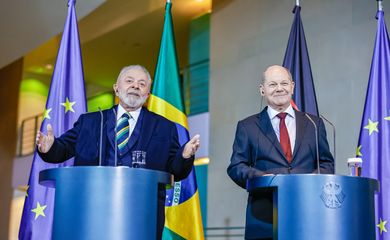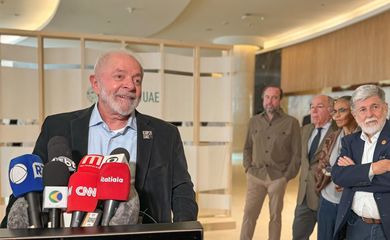Mercosur’s Social Summit calls for new EU deal

Neo-colonial: This is how representatives of society described the agreement with the European Union at Rio’s Museum of Tomorrow on Monday (Dec. 4), the first day of Mercosur’s Social Summit. The text of the deal, drafted in 2019 after over 20 years of talks, was considered unfair and unequal, as it contains provisions that favor a hierarchy in relations between South Americans and Europeans, to the detriment of the former.

At the panel discussion in the afternoon, Raiara Pires, from the Movement for Popular Sovereignty in Mining (MAM), advocated ending current negotiations and building a new pact on a different basis, a text that takes into account the unity of popular and academic knowledge and allows for qualitative and equitable development between nations.
“In an accord of this size, one year is not enough to revise the initial text presented by the previous governments. A fresh start would be more strategic in this unequal balance of power. Our bargaining power needs to be strengthened and improved. Exchanges between nations have always taken place, but they don’t have to be done carelessly. We can assume a position of sovereignty and strengthen this government so that it holds a firm stance,” said Pires.
Adhemar Mineiro, from the Brazilian Network for the Integration of Peoples (Rebrip), shares this sentiment. Speaking at the summit, he said the current compact makes the integration of peoples unfeasible, as it includes elements that favor competition between South American countries. Therefore, he added, it is necessary to start from scratch, rather than sticking with the current version and merely seeking a policy of harm reduction.
“The social movements on our side of the Atlantic and the Europeans have come closer together because they want to discuss agreements on a new basis, one that doesn’t concern trade alone. Issues of solidarity between peoples and sustainability must take priority. So why insist on an agreement that reinforces the export-oriented nature of South America’s economies instead of looking for another model of integration?” Adhemar questioned.
Society
The deputy executive secretary of the president’s Secretariat-General, Flávio Schuch, celebrated the return of Mercosur’s Social Summit and the possibility of resuming the government’s direct dialog with representatives of society. He advocated the broadening of the debate on issues that affect the governments and the peoples of South America.
“The possibility of a Mercosur agreement with the European Union is directly proportional to the possibility of hearing the aspirations of society. President Lula has been insistent on the need to resume society’s effective participation. The 2019 agreement was built on other bases that no longer interest Brazil. Brazil wants to negotiate, but the European Union also needs to listen and negotiate on environmental issues, family farming, and government accounts. We don’t want to enter into an agreement that somehow means the de-industrialization of our country,” he argued.




